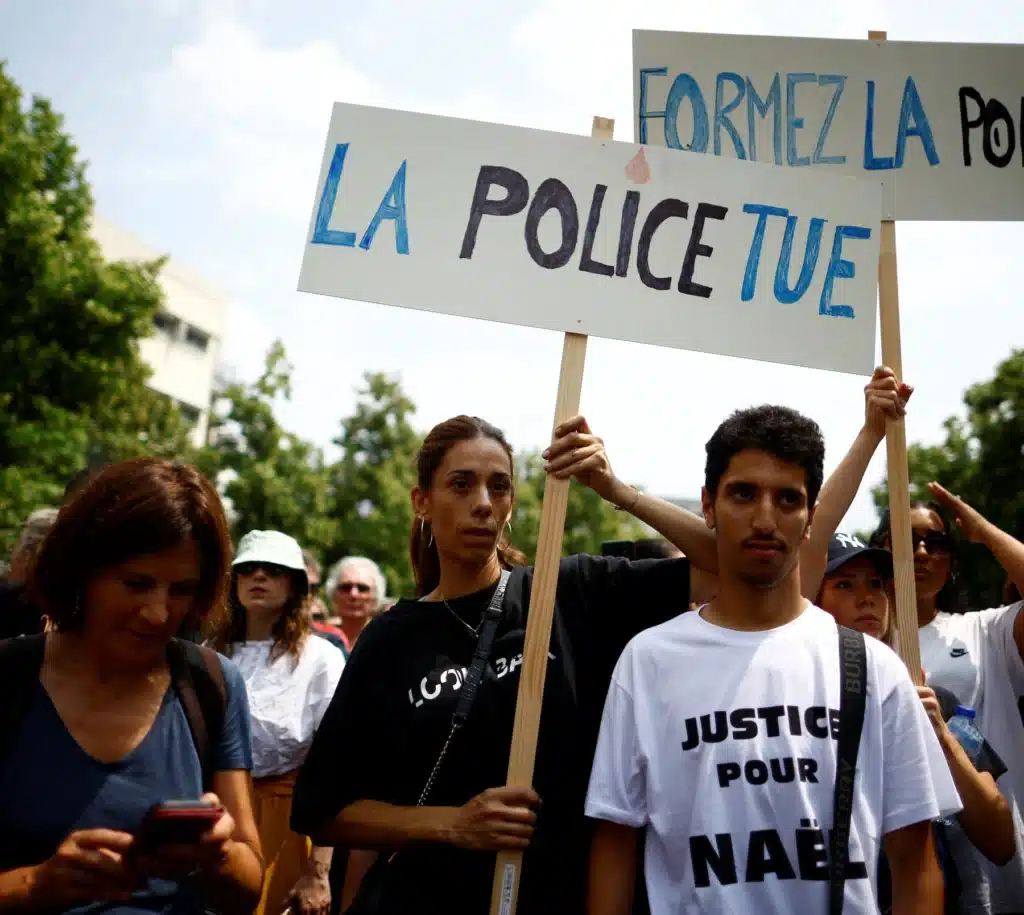France is bracing for another night of violence after riots erupted in several cities following the fatal shooting of a 17-year-old boy by police in Nanterre, a suburb of Paris.
The boy, identified as Nahel M, was killed on Tuesday morning when he was stopped by two traffic officers in a Mercedes car. According to police, he tried to drive away and hit one of the officers, who then fired at him in self-defence. Nahel died from a gunshot wound to the chest.
His death sparked outrage and grief among his family, friends and community, who accused the police of racism and brutality. Nahel was of North African descent and had Algerian and Moroccan roots. He was an only child raised by his mother Mounia, who described him as her life and best friend. He was working as a takeaway delivery driver and played rugby league as part of an integration programme for teenagers struggling in school.
On Thursday, thousands of people joined a silent march in his honour in Nanterre, where he grew up. His mother led the procession, holding a banner that read “Justice for Nahel”.

From the bustling streets of Lille in the north to the vibrant city of Marseille in the south, the country witnessed another harrowing night of chaos and destruction. Public buildings, shops, and vehicles fell victim to a wave of attacks that left communities reeling.
In Roubaix, a city fraught with tension, reports emerged of a bed-and-breakfast hotel engulfed in flames, forcing terrified residents to flee onto the streets, seeking refuge from the inferno that consumed their temporary sanctuary.
However, it is the Paris region that once again bore the brunt of the turmoil. Disturbing scenes unfolded in Nanterre and surrounding suburbs as groups clashed fiercely with law enforcement, engulfing the streets in an unsettling air of confrontation and volatility. Startling reports from the scene indicate that some rioters resorted to using homemade grenades, amplifying the threat to public safety and highlighting the gravity of the situation.

Just hours before this eruption of violence, thousands had gathered for a peaceful march in Nanterre, commemorating the tragic loss of Nahel. The untimely demise of this young individual has resonated deeply within the hearts of many, serving as a catalyst for outrage and discontent towards the police, politicians, and the state itself.
France’s leaders are acutely aware of the potential consequences that Nahel’s death may have on the nation. Fear looms large as they grapple with the ominous prospect of a broader rebellion, one that could jeopardize the delicate balance between the people and those entrusted with their protection.
Despite concerted efforts to quell the unrest, deploying elite police units and bolstering officer numbers, the government’s grasp on the situation remains tenuous. The nation awaits a sense of stability and reassurance, yearning for a resolution that will restore peace to the streets and heal the wounds of a fractured society.
As the sun sets on yet another tumultuous day, the future of France hangs in the balance, uncertain and unsettled. It is a pivotal moment that will test the resolve and resilience of the nation, demanding decisive action and effective measures to regain control. Only time will tell if the authorities can rise to the challenge and bring an end to this troubling chapter in France’s history.

